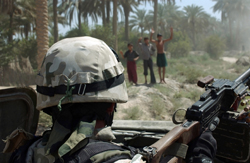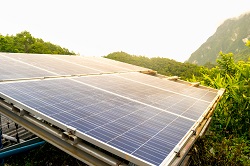The effect of armed conflict on child aggression
Funded in part by the EU, the CHILDREN AND WAR (Children in the crossfire: The cumulative effect of political violence, parent-child relations, and individual characteristics, on the development of aggression) project was set up to investigate the development of behaviour problems in Israeli children living in an ongoing state of political violence. The 2.5-year longitudinal study considers individual, family and child-parent relationship factors. Its focus is on how oppositional defiant disorder (ODD) and conduct disorder (CD) evolve, in relation to fluctuations in political violence. Using a developmental ecological approach, the project recognises that children's exposure to political violence (EPV) takes place in the context of other developmental risks, especially family relations. As such, the main aim is to further comprehend the influence of parenting, parent mental health and attachment behaviours on the development and maintenance of ODD and CD in such an environment. CHILDREN AND WAR has carried out a series of studies aimed at better understanding the cumulative effects on the development of behaviour problems of EPV, family relations and a child's vulnerabilities and strengths. The data collected in the project's studies underline the importance of environmental factors in the development of children growing up in a chronic state of war. One study found that children's symptoms, particularly those of aggression, were linked to maternal levels of depressive symptoms and severity of stress. The findings are in keeping with previous research implying that family factors may be a greater risk for the development of behaviour problems than EPV alone. Mother–child interactions have been videotaped. Initial findings show promise for further highlighting how EPV affects maternal behaviour and emotional availability, which in turn impacts the mother-child relationship and children's behavioural symptoms. Another study is assessing the impact of exposure to sirens and missile attacks on children's levels of symptoms, examining whether positive parent-child relations act as a buffer in such cases. A study of 300 children at a school north of the border with the Gaza Strip examines the links between EPV, children's reported security of attachment to parents, their personal strengths and difficulties, and aggression. Project researchers expect the data to shed light on the cumulative effects of EPV, attachment and personal vulnerabilities on adolescent well-being. Although data analysis is still ongoing and has yet to be interpreted, CHILDREN AND WAR is breaking new ground in this fairly new area of research. Increased knowledge of the factors at play in children's EPV will be crucial to the development of prevention and intervention programmes targeting the child as well as significant others in their environment, for meaningful impact and enhanced well-being.




